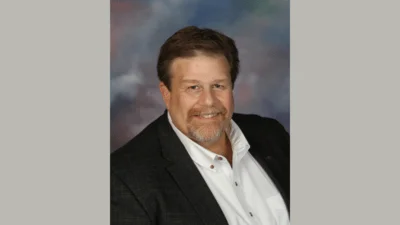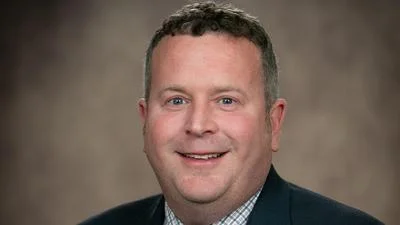Illinois State Board of Education Education Policy Planning Committee met Aug. 9.
Here are the minutes provided by the committee:
I. Roll Call
Chairperson Susie Morrison brought the meeting to order at 12:34 p.m. Roll call was taken, and a quorum was present with three members. She verified that each member could hear one another and follow the discussion, and that they were able to testify.
Committee Members Present
Chairperson Susie Morrison
Dr. Donna Leak (virtual)
Jaime Guzman (virtual)
Other Board Members Present
None
Staff Present
Dr. Carmen I. Ayala, State Superintendent
Kirsten Parr, Board Services Coordinator
Kim Clarke, Executive Assistant to the State Superintendent
Dr. Brenda Dixon, Research and Evaluation Officer
Dr. Erica Thieman, Director of Curriculum and Instruction
Dr. Ernesto Matias, Education Officer
Dr. Jennifer Kirmes, Executive Director of Teaching and Learning
Krish Mohip, Deputy Operational Education Officer
Dr. Melissa DiGangi, Director of Research
Tassi Maton, Internal Audit Officer
Annie Brooks-Pearl, Executive Director of Regulatory Services
Marci Johnson, Director of CTE and Innovation
Oriana Wilson, Executive Director of Programs
Robert Wolfe, Financial Officer
Derreck Langwith, Director of ROE/ISC
Dr. Sean Clayton, Director of Assessment
Irma Snopek, Policy and Communications Officer
Cara Wiley, Director of Wellness
Barbara Moore, Director of Special Education
Jeremy Duffy, Legal Officer
Kim Barnes-Cummins, Supervisor of Student Care
Barbara Hobrock, Principal Consultant in Legislative Affairs
II. Public Participation
John Burkey, executive director of the Large Unit District Association (LUDA), spoke on the topic of assessment. He affirmed his appreciation for ISBE’s work with the Center for Assessment and stakeholders. He believes that first steps are possible as soon as this fall and should focus on addressing the Illinois Assessment of Readiness (IAR), namely Recommendations 4 (provide better and more efficient reporting), 6 (shortening the IAR), and 7 (investigate the possibility of an adaptive test design) of the center’s report. He also advocated for continued work on assessments with the center or a similar firm.
Jon Furr, executive director of the Education Systems Center (ESC) at Northern Illinois University, spoke on competency-based education (CBE). He believes a greater focus on useful, cross-cutting skills for students is necessary. He also believes that ISBE should continue to work with local stakeholders and leadership in expanding opportunities for CBE. Chair Morrison asked with which districts ESC had been involved, and how institutions of higher education viewed the prospect of competency. Mr. Furr said that ESC had worked with six communities, with the most effective CBE programs incorporating college and career readiness, and that institutions were generally receptive to further accepting these programs.
Ginger Reynolds, a senior fellow at ESC, discussed the Future of Learning Coalition, a partnership between ESC, LUDA, Teach Plus, Illinois Digital Educator Alliance, and Leap Innovations. She promoted the coalition’s focus on advancing innovative models for education and increasing access to these models. She said she hoped that ISBE will collaborate with the coalition on future efforts.
Paul Zavitkovsky of the Center for Urban Education Leadership discussed enhancing IAR test reporting. He believes Center for Assessment Recommendations 4, 6, and 7 could be acted upon this coming fall. Chair Morrison asked about his discussions with New Meridian and if information had been shared with the Board. Mr. Zavitkovsky said that reports would come from the organization.
Chair Morrison asked Dr. Dixon when IAR results would be returned to schools. Dr Dixon affirmed that preliminary data was available, and that final results should be available soon. Chair Morrison asked about the implementation of Center for Assessment recommendations. Dr. Dixon noted that ISBE has focused on reporting goals within the ISBE Strategic Plan. She said that the State Assessment Review Committee (SARC) should discuss implementation of recommendations before moving forward, and that had been delayed due to insufficient attendance at meetings. Chair Morrison encouraged more urgency in facilitating the SARC discussion on an important issue.
Dr. Leak noted that verification reports were available in May, and assessment score reports were available in late July.
Cynthia Lund, legislative director of Illinois Federation of Teachers, spoke on assessment. She encouraged ISBE action on Recommendations 4, 6, and 7. She believes acting on these would enable more time for learning in classrooms, a necessary aid in learning recovery from the pandemic, and facilitate more timely reporting of useful testing data.
III. Approval of the June 2, 2022, Meeting Minutes
Dr. Leak made the motion for the Education Policy Planning Committee to approve the June 2, 2022, meeting minutes. Mr. Guzman seconded the motion, and it passed by a unanimous roll call vote.
IV. Discussion Items
A. Competency-Based Education Pilot
Dr. Thieman; Dr. Burkey; and Dr. Donn Mendoza, superintendent of Round Lake CUSD 116, presented on this item. Dr. Thieman said CBE is part of Postsecondary and Workforce Readiness Act requirements that pertain to ISBE. Dr. Burkey discussed the importance of CBE for advancing education to work better for a wider range of children in a world of where information is more accessible.
Dr. Thieman discussed the structure of the pilot program, noting the implementation process and applicable waivers. Mr. Guzman asked for clarity as to whether the data that schools that received waivers presented were for the program. Dr. Thieman confirmed this, noting that waivers were necessary for many of the proposed program structures to allow for students to partake in nontraditional opportunities. Ms. Morrison asked if participating schools were primarily high schools. Dr. Thieman said that high schools were predominant participants early on but noted that there were some grade school pilots and that the number of pilot programs in each category evened out with time.
Dr. Thieman presented on demographics of students participating in CBE programs. Dr. Leak asked for clarity on which cohorts were being presented, namely a figure that indicated that 72% of students were in K-8. Dr. Thieman responded that this was compiled from all five years of the program and would clarify some points prior to the September Board meeting. Chair Morrison also expressed interest in this figure and the nature of CBE programs at the K-8 level. Dr. Thieman suggested that more particular requirements for high school program structures may mean that implementing CBE at the K-8 level will be less difficult.
Dr. Thieman showed findings that suggest strong variability across schools on implementation of CBE, categorized primarily by course-specific programs, grade-level cohorts, and school-/districtwide programs. Districts and teachers displayed a desire for more professional learning on CBE and emphasized the importance of waivers in successful implementation of programs. The pandemic was disruptive to implementation for many programs. Perceptions of the programs varied from parents, students, teachers, and administrators.
Dr. Burkey discussed implementation in LUDA districts. He affirmed the variability and noted the significance of local flexibility in the implementation of these programs. He emphasized the novelty of these programs and encouraged a focus on progress and an expectation that there will be roadblocks in early stages. He believes increased education on the role of these programs in communities could help clarify issues. He believes that the current system works well for many students and families, tough there has been some resistance in implementing these programs. He believes ISBE should continue to support the pilot as a source of further understanding and collaboration in the implementation of CBE.
Dr. Thieman discussed recommendations on the pilot program. Findings suggest no evidence of harm in participation in these programs. More data collection would further understanding of its implementation and it should be continued. Findings also suggest that participating schools would benefit more from further support for faculty participating in CBE programs. The overall recommendation is an extension to account for the pandemic’s impact, renewed support efforts for data collection in districts, and standardization that allows for consistent reporting.
Dr. Leak asked how many four-year cohorts a three-year extension would allow. Dr. Thieman noted that every current participant would be able to obtain data from four-year cohorts. Dr. Leak asked to confirm if four-year cohort data would only apply to high schools, or if it would apply to K-8 levels. Dr. Thieman affirmed the interest in postsecondary outcomes with four-year cohorts in high school but noted that K-8 also has points of interest, namely a transition into high school, that could be relevant for four-year cohort study.
Dr. Mendoza discussed implementation of a skills-based program in his district. He viewed the opportunity to find an educational approach more effective for students in the district than the traditional model. He reported an increase in engagement among students and more customization in high school schedules without compromising expectations for students. The competency model has allowed for more assessment of skills that is more applicable beyond the school environment. He emphasized the challenges of the pandemic and concerns about new teachers coming into the program unfamiliar with the structure of CBE. He noted a need for more engagement with parents in the community to emphasize the possibilities of the competency-based program. He supported a need for standardization of metrics for program success but emphasized the value of less traditional ways of measuring success.
Mr. Guzman asked about the training of new teachers and what resources are needed. Dr. Mendoza noted the importance of staff, particularly in his district’s professional development program.
Chair Morrison asked about postsecondary outcomes. Dr. Mendoza mentioned many students engaging in a wider array of opportunity beyond a four-year college program and seeing success in career-preparation programs where students received credit through work in the field. Dr. Leak asked about the benefits for English learners (ELs). Dr. Mendoza notes that there is a districtwide waiver, but that programs are focused largely on his district’s high school, where there are many ELs. Competency-based focus extends to EL classes as well.
Chair Morrison emphasized her support for competency-based programming, the challenges that can come with its implementation, and an excitement for further incorporation of programs. She believes ISBE has a great opportunity as the state agency to support these programs.
V. Review of August Board Action Items
A. Approval for Publication - Part 226 (Special Education)
Ms. Moore presented this item.
There were no questions from committee members.
B. Contracts & Grants Over $1 Million - Approval to Release and Award a Request for Sealed Proposals for the Administration of the Illinois Science Assessment
Dr. Leak asked to confirm the program’s operation to fiscal year 2027, and how it relates to the IAR in terms of timing. Dr. Clayton affirmed that it does extend to FY 2027. Dr. Leak wants to ensure that both the Illinois Science Assessment and IAR have sufficient resources as changes to both are considered. She is concerned about overlap in these processes. Dr. Clayton noted a five-year renewal option on the IAR allows for flexibility.
Chair Morrison asked on how teachers valued these assessments. Dr. Clayton reported generally positive feedback from select cohorts but can follow up with more detailed information.
C. Contracts & Grants Over $1 Million – Approval of Request to Enter into an Intergovernmental Agreement with University of Illinois Springfield for the Reduction of Exclusionary Discipline
Ms. Barnes-Cummins discussed this item.
Dr. Leak asked how these programs are accessible to schools. Ms. Barnes-Cummins responded that schools must be on the top 20% of exclusionary discipline usage, and that there are virtual elements as well as coaches sent to districts to provide training. However, funding limits how large the program can be while preserving quality. Dr. Leak asked about recruitment efforts to eligible schools; Ms. Barnes-Cummins confirmed that there are efforts to do so. Dr. Leak asked about who at the schools were provided training and support. Ms. Barnes Cummins noted that the exact model varied from district to district.
VI. Review of September Board Action Items
A. Approval for Adoption - Part 1 (Public Schools Evaluation, Recognition and Supervision) and 207 (Absenteeism and Truancy Policy)
Ms. Parr clarified that this would appear on the consent agenda for the August Board meeting. There were no questions on this item.
B. Contracts & Grants Over $1 Million - Approval to Award a Sole Source Grant to the Simon Wiesenthal Center for Operation of the Mobile Museum of Tolerance
Chair Morrison asked if this was a member initiative. Ms. Parr confirmed that it was. Dr. Matias clarified that ISBE has previously approved funding for the center, and this grant was focused on expanding the offerings of the program. Dr. Leak asked if it had been a member initiative in prior funding. Dr. Thieman confirmed that it was not. Dr. Leak asked if ISBE owned the bus. Dr. Thieman confirmed ISBE did not; that funding came from several sources; and state contributions were primarily focused on educational programming, which would also be the case with this version of the grant.
Dr. Leak asked about regulations for the center’s programming. Dr. Thieman noted that resources that are developed must align with ISBE Social Studies Standards and that the instructor, who will be affiliated with the center, will be vetted by ISBE staff.
Chair Morrison asked about the metrics for funding and baseline for operation. Dr. Thieman confirmed that accountability metrics for funds are a part of negotiations for member initiatives. Mr. Guzman asked if this had been done. Dr. Thieman noted negotiations have been underway and are desired targets are being specified based on previous operations.
Dr. Leak asked if ISBE funds had sustained it for its previous period of operation. Dr. Thieman clarified that it was supported by other, private entities. Dr. Leak asked if other funding sources had interests in standards for educational content or operation. Dr. Thieman clarified that the museum is in service of the state of Illinois. Center staff have worked to ensure that state educational standards are met.
Dr. Leak asked about the reach of the program. Dr. Thieman noted that the mobile museum made stops across the entire state, and that ISBE is working with its staff to determine which communities that have not been visited should be priority locations for outreach. Dr. Leak noted that, given active outreach efforts, ISBE should ensure the content is in line with desired learning outcomes for social studies.
Chair Morrison asked if there would be continued communication with ISBE about operations throughout the year. Dr. Thieman confirmed that ISBE would be regularly meeting with the center to ensure it is meeting the set standards and deliverables.
C. Contracts & Grants Over $1 Million - Approval to Award a Sole Source Grant to the Peoria Public School District 150 for Fine Arts and Other Programs
Dr. Thieman discussed this item.
Chair Morrison noted the value for the district but remarked that other districts lacking in robust fine arts programs might question their ability to access comparable funding.
Chair Morrison asked how much funding was in member initiative contracts and grants for the coming year. Mr. Wolfe responded that it was over $20 million.
D. Contracts & Grants Over $1 Million - Approval to Release and Award an Invitation for Bids for ISBE to Enter into a Competitive Bid for Illinois Standards-aligned Assessment Content to Administer the Illinois Assessment of Readiness in Grades 3 through 8
Dr. Clayton discussed this item. He clarified that this relates to aligning content contracts with platform and reporting contracts for the IAR.
Dr. Leak asked about how this interacted with recommendations for assessment. Dr. Dixon noted that they were separate, and that content is necessary for any form of assessment. She clarified that this does not restrict the opportunity to act on recommendations for structures of assessment. Dr. Leak emphasized the importance of contextualizing its place on the agenda, given the active discussion on assessment in the field. Mr. Guzman asked for clarity on the implementation; Dr. Dixon affirmed that this bid is necessary to secure content for the assessment and does not limit the chance for future changes to the assessment process.
E. Contracts & Grants Over $1 Million - Approval of Grant to After School Matters
Ms. Wiley discussed this item.
Chair Morrison noted this was a member initiative and asked to confirm that similar metrics and monitoring to funds applied as it does to other initiatives. Ms. Wiley confirmed this, noting that After School Matters had regularly supplied a yearly progress report.
Dr. Leak asked to confirm that the program was located solely in Chicago. Ms. Wiley confirmed this. Mr. Wolfe noted that a grant request for After School Matters had previously been seen by the Board and was in discussion again for a funding request higher than previous Board recommendations.
F. Contracts & Grants Over $1 Million - Approval of Intergovernmental Agreement with Eastern Illinois Area Special Education to Execute the Specific Learning Disability Support Project
Ms. Moore discussed this item.
Dr. Leak asked how programs were facilitated outside of EIASE’s primary 28 districts. Ms. Moore mentioned its plans to hire staff to work across the state, and that its partnership with other entities led to influence in other areas. She noted that there were both virtual and in-person opportunities possible, as they relate to training, and EIASE emphasized targeting schools identified as needing improvement. Dr. Leak asked about the accessibility of the Dyslexia Handbook and notification of changes. Ms. Moore confirmed that virtual training opportunities for the handbook would be available, including the updates.
G. Approval of the Fall 2022 Waiver Report
Ms. Hobrock discussed waiver requests on the report and noted there was nothing out of the ordinary. There were no questions on this item.
VII. New Business: Items for the Next Agenda
Dr. Leak asked about the status of the IL-EMPOWER School Improvement Grants, namely for learning partners. Mr. Wolfe noted that award notices had started being posted, but there were pending items relating to procurement.
Mr. Guzman noted recommendations from the Whole Child Task Force that could be discussed. He also asked for an update on student enrollment, in the context of pandemic learning recovery, when numbers are available for this year. Mr. Wolfe said that enrollment data is due from schools in early October and may be available for meetings that month. Chair Morrison noted that tracking the progress of the school year would be important to identify where Board intervention could be useful.
VIII. Next Meeting: September 8, 2022
IX. Adjourn
Dr. Leak made a motion to adjourn. Mr. Guzman seconded the motion, and it passed by a unanimous roll call vote. Chairperson Morrison adjourned the committee at 2:29 p.m.
https://www.isbe.net/Documents_Board_Meetings/20220809-EPP-Minutes.pdf





 Alerts Sign-up
Alerts Sign-up